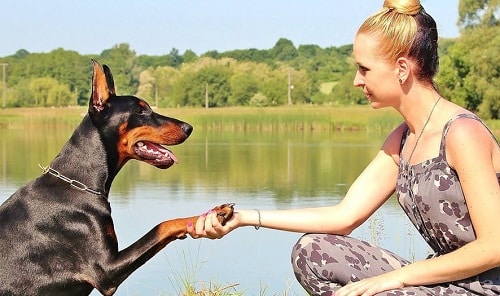6 Benefits Of Failed Relationships
What could be more heartbreaking than losing a relationship with someone you love? I mean, that’s about tears and loss and “what ifs” and “I’ll never love anyone like that again” and the pain of letting go, isn’t it? It is truly a sad time, and it can be downright hard. How greatly we seem affected. In his book on brain health, Dr. Daniel Amen says that bonding with another person causes neurochemical changes in our brains. When that bond is broken, our brains are disrupted on a fundamental, chemical level.
It’s okay to go through grief and pain after breaking up with your spouse. If you go into a depression (where you’ve lost interest in life for more than two weeks), consider seeking help from a physician. Otherwise, bear in mind that feelings of grief, which are recurring and cyclical, will eventually subside and you’ll be back on your feet before too long. When it is all said and done, you could come out of it a stronger, wiser person. It’s like walking through a dark tunnel and coming out on the other side.
[adsforwp id="18080"]
1. A Reason To Think Twice
What can possibly be good about a failed relationship? Well it certainly doesn’t feel good, and that’s for sure, right? Well, one reality is that the relationship has ended. Once a relationship has ended, it is possible to step back and look at it objectively. That is not always possible during a relationship because emotions can muddle logical thinking.
A failed relationship provides an opportunity to consider what happened that was good and what happened that was bad. How did your partner contribute to the relationship? How did your partner take away from the relationship? Would you want to date someone like this partner again? Was your partner a nurturing person? What could you have done better in the relationship? Did you make any mistakes? It helps to make an honest evaluation so that you gain wisdom.

2. Consider It An Experience
Experience is a teacher. I do not believe that a failed relationship is a true personal failure on either person’s part. Both people could have worked hard and made an effort. There is no “How To” guide on relationships. Some of the learning about relationships is through trial and error and experience. Individuals can strive to do their best in relationships, acting with honesty and fairness. In doing this, they enhance themselves and contribute to the relationship. When they look back at the relationship, they can at least know that they did the best they could.
3. Time To Change
Once you have evaluated the relationship, you can turn your attention to making changes. Making positive changes can benefit your future. Truthfully, it is hard if not impossible to change another human being. Imagine saying “Hey, by the way, I think you should change your whole psychology!” It would be a waste of your energy. Your former partner may not make changes based on any recommendations you might have, so it’s best to forgive your partner and move on.
The real payoff can be in looking at your actions, finding trends that don’t work, and doing your best to make changes for yourself. When you make changes for yourself, you make a positive investment in your future relationships. Many of us learned our ways of handling ourselves in relationships from our parents or caregivers. How did your caregivers interact with each other and with you when you were growing up? Were your caregivers fair with you? What is your feeling about that question? Fairness translates into all kinds of behaviors, from delivering on promises to being predictable and reliable.

If you have sad or anger-provoking memories of your past with your caregivers, you may have suffered from a dysfunctional family system, and you may have learned behaviors that are bad for relationships. That is a painful realization, but it can be the beginning of a new chapter for you. It is important to find emotional support from people outside your family who can understand your experience and support you in learning and practice positive human interactions.
Recovering from a difficult past requires human support. This is a big job, and it may take time, but it is said that sometimes the hardest part of a journey is the first step. Books can provide information but should not be used in place of human support.
4. Time to Bond With Your Friends
The process of evaluating a failed relationship can be shared with friends, and that sharing can strengthen your friendships. This is a positive outcome. Imagine if your phone rang and a friend asked to talk to you. How would you feel? Friends or even acquaintances with whom you feel comfortable may be happy to listen to the story of what happened, how you felt, how the relationship began, unfolded and ended, and how you believe the relationship failed. This can take place over many conversations.

Sharing your human experience makes you human to others. Your friends will find assurance in knowing that you feel at ease with them and that you trust them on a mental and emotional level. Your friends will provide you with the gift of listening and human attention. In sharing your story, you will provide them with the gift of knowing you better. Respectful friends will not make negative judgments about you or pretend to know all the answers regarding relationship problems.
5. Focus on Your New Future
Once you have evaluated your past relationship and taken an honest look at your role in it, you can use that information to your advantage in making decisions about your future relationships. Whether you are recovering from a dysfunctional past or are simply evaluating your past relationship, you can be assured that your decisions about your future will be better informed than before.

6. Move On
You can decide at what pace to allow your next relationship to develop. You may decide first to observe how a person functions in human interactions before getting romantically involved with him or her. Accordingly, you will have a better idea of how you would like a person to support and interact with you. You will know what traits of personality and character are important to you. It may be beneficial to correspond with an individual’s family and friends as part of getting acquainted. You will be approaching the relationship from a broader perspective than before.
Finally, you can give yourself credit for going through a relationship, surviving, and coming out stronger and wiser. The benefit of surviving is an increase in self-esteem. The fact that you are going on with life is a testament to your strength. Among people, few haven’t experienced a failed relationship.
Living a human life requires strength and endurance and, regardless of your position in life, you have accomplished something just by surviving. Fulfilling romantic relationships can be one of the life’s goals and treasures. You need not, however, be discouraged over a failed relationship or the absence of a relationship. You are worth much more than that.
See Also:
- 10 Marriage-Saving Lessons from Couples Who Didn’t Make It
- 10 Ways On How To Ditch A Date
- 10 Ways to Charm a Girl on the First Date
- Dog Pig Compatibility
 Mystic Compatibility Zodiac Signs Compatibility
Mystic Compatibility Zodiac Signs Compatibility




